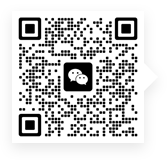越来越多的人因为职场需求而不得不重学英语,但是学习了单词拼凑在一起却变了味道,很难说出地道的口语表达。大多数中国人都经历过小学、中学、大学,而英语又一直是主科。我们认真听讲,辛苦背单词、背课文、做习题、找听力材料、做阅读理解。再看看我们的老师,他们不厌其烦的强调单词短语, 还把语法总结成一条条数学公式让我们套用, 教我们组织长难句以便获得高分。我们期望有朝一日把什么都学过了,记住了,别人说我就应该能听懂了,会说了,会用了。可现状呢?大多数人仍然深陷在外语学习的泥潭中。
究其原因,问题的根本就出在了这个“学”字上。对语言学习方式定位错误,把英语作为一套知识体系来 “学习” ,而不是作为一套行为动作来训练,是造成语言学习效率低下的根本原因,是一代一代中国学生付出惨重代价的罪魁祸首。而运用英语进行交流,就像弹琴、游泳、开车一样,是一项技能。
化繁为简,建设英语思维
英语思维应该是指:能够不假思索地用流利地道的英语表达所思所想。或者说,就是不需要翻译过程就能直接理解信息或说出话来。如果你习惯于先用中文理解和反应,再翻译成英文,就不是“英语思维”。
用英语思考是成为一个流利口语表达者的前提。当你能够在自己心中用英文进行有逻辑的思考时,单词只是在脑海中毫不费力地流动而已。你很容易就可以与你的商业伙伴沟通,而不需要先“翻译”他们说的一切后,再努力思考该怎么“翻译”自己想表达的中文句子。
如何练习用英语进行思考?
Learn the grammar rules in context and put them to practice in your speech. To start thinking in a second language, you need mainly the basic ones mastered almost to perfection. Forget about translating the sentence word for word from your native language. Start your sentences with the simplest elements: the subject and the verb. Then, build the sentence from that base and you won't go wrong.
在语境中学习语法规则,并在实际口语中练习。想要开始用二外思考,你主要是需要完美的打牢基础。忘记逐字逐句地将句子的单词翻译成你的母语这种办法。用简单的元素开始造句:主语和动词。然后,以此为基础的开始构造句子,你就不会出错了。
Learn vocabulary in pairs, not separately, through logical texts and stories: they give structure to the words and they help you connect one word with another. When you learn the word beneficial, you should also look up words and phrases that go along with it. That's the easiest way to remember a great deal of words from a single lesson.
通过阅读有逻辑的段落和故事学习词汇搭配,而不是单独背诵单词:它们给出词汇的结构并帮助你将独立的单词连接起来。比如当你学习单词beneficial时,你也应该查找与它搭配的单词和短语。这是从单节课程中记住大量词语的简单的方法。
When you're listening to native English speakers talk, you'll notice expressions and phrases that you like and would like to remember and reuse. Write them down and use them in your own sentences. You can also identify specific phrases in the texts you read, so make sure to make a note of them too.
当你听母语为英语的人讲话时,你要注意到你喜欢和想要记住并重复使用的搭配和短语。把他们写下来,用你自己的话造句。你也可以在你阅读的文章中明确那些特定的短语,因此一定要记下它们。
Practice! You can 't start thinking in a second language if you don't practice speaking and listening. Turn this into a daily activity: talk to your friends or colleagues in English. Ideally, you should practice every day. If you have no one to talk to, you can use your phone to record your speech and listen to it.
练习!如果你不练习听力和口语,你就不能做到开始用二外来思考。把这些练习变成一个日常活动:用英语和你的朋友或同事交谈。理想情况下,你应该每天都练习。如果你没有人练习交流,你可以使用你的手机录下自己的演讲并仔细听(以纠错)。
Observe the things around you and name them while thinking in English. When you catch yourself not knowing how tosay something, remember the confusion. When you get some time on your hands,look for the word in your dictionary and write it down.
观察你周围的事物,并用英语思考怎么说。当你发现自己不知道怎么表达的时候,记下让你迷惑的地方。在你有时间时,在字典里查阅这些单词并把他们写下来。
Use an English-only dictionary, such as the Oxford English dictionary. Instead of using a bilingual dictionary that translates the terms to your own language, you'll get descriptions in English and you'll understand the words from the context. You'll notice you can remember the words more easily through this method.
用英-英字典,如牛津英语字典。不要使用双语字典翻译到你自己的母语来理解,这样你可以看到英文的描述,你会理解单词在上下文中的意思。你会发现通过这种方法可以更容易记住这些单词。
Practice writing. It's important to get your thoughts in writing; that's how you give them shape and you notice the mistakes. Take a separate notebook and write simple sentences every day. Try to maintain the correct grammar.
练习写作。重要的是把自己的想法写下来; 这是关于你怎么给出文章的框架然后找出错误的。拿另一个单独的笔记本,每天写一些简单的句子。试着保持使用正确的语法。
When you don't know a word in English, try to give an explanation (paraphrase) instead. For example, let's say you don't know what the English word for notebook. You can explain what that is by saying “an empty book we use for writing.” Use pattern structures, such as “This is a person who…” or “This isan object we use when…” to explain something you don't know the word in English.
当你不知道一个英语单词时,可以先尝试给出一个解释(转述)。比如,当你不知道英语单词notebook时,你可以解释说他就是“我们用于写作的一本空白的本子”。使用模板结构,如“This is a person who…(这是一个...的人)”或“This is an object we use when(当…时我们使用这个东西)”来解释一些你不知道的英语单词。
Use smartphone apps for short-time activities. There are awesome language-learning apps, but don't stop there. Use a calendar, note-taking app, dictionary, and every other app you can think of with the English-based interface. These activities will help you learn random words effortlessly.
使用智能手机的app安排零碎时间的学习。有些很棒的语言学习app,但不要仅止于此。使用日历,笔记记录的app,字典,以及所有其他你能想到的对英语交流有帮助的应用程序。这些活动将帮助你随机且轻松的学习单词。
Talk to native speakers as much as possible. When you establish a friendly connection, the conversation will flow and you won't torture yourself with mental translating. You'll be thinking in English before you know it. Social media can help you connect with native speakers. If you don't have anyone to talk to, then hire a professional tutor.They will help you practice a lot.
尽可能与英语母语者交谈。当建立起愉快的沟通时,谈话会十分顺畅,你不用再拿内心的翻译来折磨自己。在你意识到这点之前,你已经会用英语思考了。社交媒体可以帮助您与母语人士联系。如果你找不到人交流,那么雇佣一个专业的指导老师。他们会帮助你很好的练习。
对于口语水平一般的学员来说,重中之重不是积累单词,而是反复利用少量的高频词汇,迅速搭建英语思维框架。有了这个框架,新学的词汇有地方存,用得上。用得上,才能记得住。有了这个框架,未来,通过阅读或在生活和工作中吸收新单词才会变得顺理成章。
所以,是先要有英语思维,才能更快地学好英语,而不是需要先经过长年累月的学习和积累才有的英语思维。



